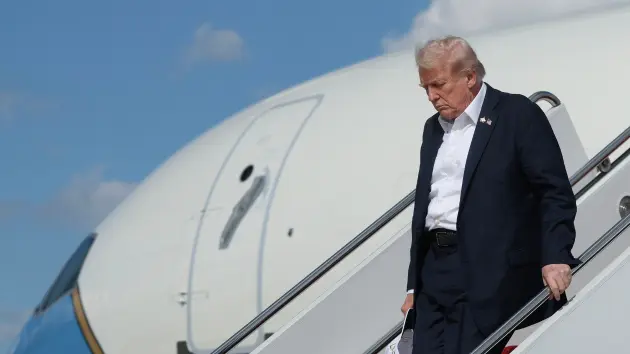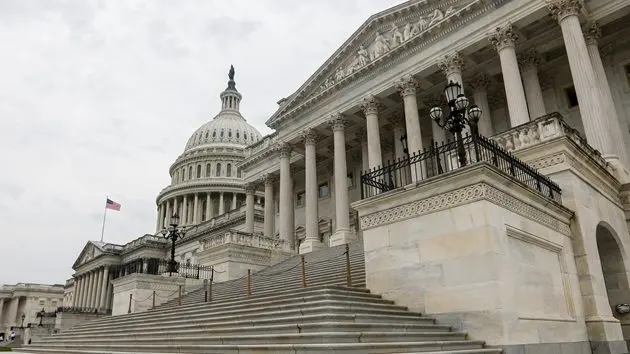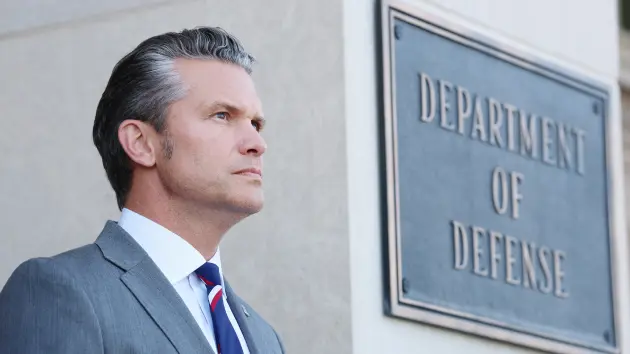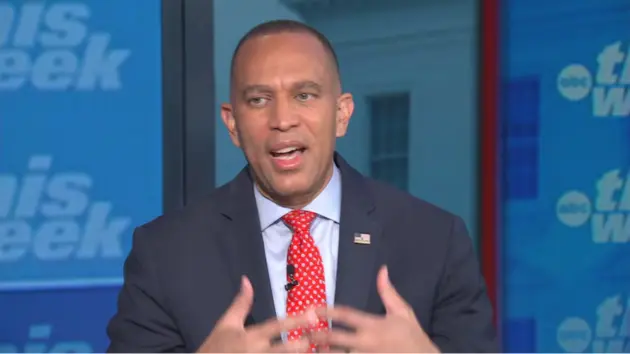(WASHINGTON) — President Donald Trump praised the U.S. Supreme Court in June for a “monumental victory” when it rolled back nationwide injunctions against his executive order attempting to end birthright citizenship.
Three months later, after two federal courts universally blocked the order again on different grounds, Trump is asking the justices for a definitive judgment on his reinterpretation of more than a century of settled legal precedent.
In filings, reviewed by ABC News Sunday but not yet on the Supreme Court’s public docket, Solicitor General John Sauer urges the justices to give expedited consideration to Trump’s appeal and a decision by next summer.
“The government has a compelling interest in ensuring that American citizenship—the privilege that allows us to choose our political leaders—is granted only to those who are lawfully entitled to it,” Sauer wrote in a petition for writ of certiorari.
“The lower court’s decisions invalidated a policy of prime importance to the President and his Administration in a manner that undermines our border security,” he wrote. “Those decisions confer, without lawful justification, the privilege of American citizenship on hundreds of thousands of unqualified people.”
Courts and the government have long interpreted the 14th Amendment’s citizenship clause to apply to anyone born in the U.S., regardless of the immigration status of a child’s parents.
The Amendment, ratified after the Civil War, states that all “persons born or naturalized in the United States, and subject to the jurisdiction thereof, are citizens of the United States and of the state wherein they reside.”
On his first day in office, Trump signed an executive order unilaterally declaring that only newborns whose parents have permanent legal status are “subject to the jurisdiction” of the U.S. and therefore eligible to be citizens.
An estimated 255,000 children are born on U.S. soil each year to one or more parents without American citizenship or permanent legal status, according to the Penn State Social Science Research Institute.
The administration is not seeking to begin enforcing the executive order until the Supreme Court decides whether or not to take up the case and ultimately render judgment — a decision likely months away.
“This executive order is illegal, full stop, and no amount of maneuvering from the administration is going to change that,” said Cody Wofsy, deputy director of the ACLU’s Immigrants’ Rights Project, in a statement. “We will continue to ensure that no one baby’s citizenship is ever stripped away by this cruel and senseless order.”
A federal judge in New Hampshire in July ruled that Trump’s order plainly appears to violate the Constitution and blocked enforcement of it in a class-action suit that covers all children who would be affected.
A separate ruling by a federal appeals court, also in July, blocked enforcement of the order nationwide, saying that a group of state plaintiffs could only be protected from the citizenship restrictions if they were put universally on hold.
The administration told the Supreme Court it seeks to appeal both cases.
The plaintiffs in each case — the ACLU and Washington State attorney general — provided ABC News with copies of the government’s filings.
In 1898, the Supreme Court previously addressed the question of citizenship for children born to non-citizens on U.S. soil, ruling in the landmark case U.S. v Wong Kim Ark that they are Americans under the law.
“The [14th] Amendment, in clear words and in manifest intent, includes the children born, within the territory of the United States, of all other persons, of whatever race or color, domiciled within the United States,” wrote Justice Horace Gray for the 6-2 majority. “Every citizen or subject of another country, while domiciled here, is within the allegiance and the protection, and consequently subject to the jurisdiction, of the United States.”
The Trump administration is attempting to argue that there is wiggle room in that precedent to still exclude from citizenship children born to temporary visitors and illegal aliens.
“The reliance interest for all of the people who are already here in the United States to whom birthright citizenship is a cherished right, and for the nation prospectively – this would be an earthquake if the Supreme Court were to rule in Trump’s favor,” said Hofstra Law professor, constitutional scholar, and ABC News legal contributor James Sample.
“I don’t see that happening,” Sample said. “On a political level, however, Trump likely sees this as favorable ground in the sense that even if he loses on the law, even if he loses in the Supreme Court, many of his political allies would see this as the kind of red meat political fight that they relish, and he would love to run against a loss.”
Copyright © 2025, ABC Audio. All rights reserved.






